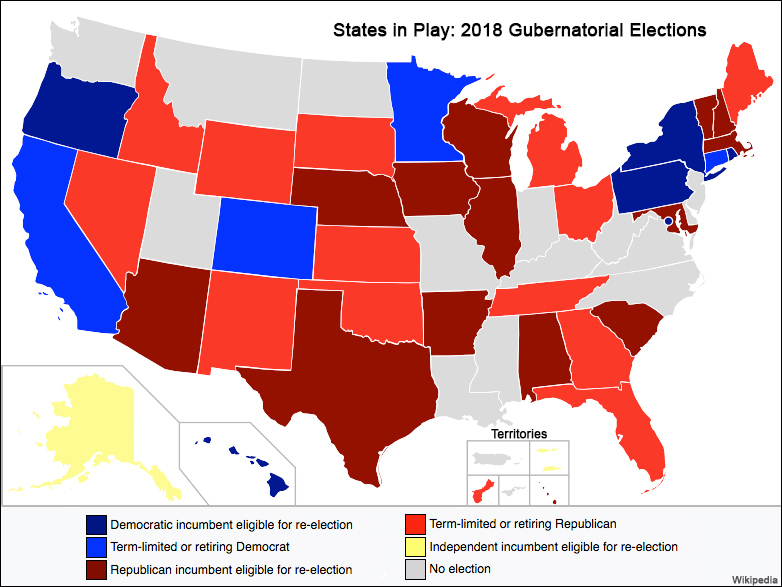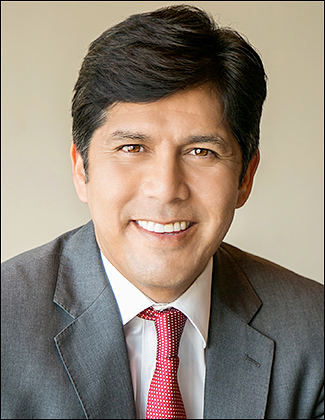By Jim Ellis — June 3, 2022
Senate
 Ohio: First Post Primary Poll Tight — The Ohio primary was May 3, and now we see the first public general election poll testing US Rep. Tim Ryan (D-Warren/Youngstown) and Republican best-selling author J.D. Vance. Suffolk University surveyed the Ohio electorate (May 22-24; 500 likely Ohio general election voters; live interview) and finds Vance jumping out to a slight three-point lead, 42-39 percent. The poll’s tight results is not unusual for an Ohio race, which typically are rated as toss-ups until the final two weeks.
Ohio: First Post Primary Poll Tight — The Ohio primary was May 3, and now we see the first public general election poll testing US Rep. Tim Ryan (D-Warren/Youngstown) and Republican best-selling author J.D. Vance. Suffolk University surveyed the Ohio electorate (May 22-24; 500 likely Ohio general election voters; live interview) and finds Vance jumping out to a slight three-point lead, 42-39 percent. The poll’s tight results is not unusual for an Ohio race, which typically are rated as toss-ups until the final two weeks.
In other questions, 42.6 percent of the respondents answered that either the economy or inflation was their most important issue, with abortion registering third at 11.6 percent. Even though he was leading the race, Vance’s favorability index was surprisingly upside down at 35:38 percent positive to negative. Rep. Ryan held a 40:23 percent positive ratio. President Biden fell to 39:56 percent. A total of 49 percent said they want to change the direction in which President Biden is leading the nation, while 24 percent said they want to support the President’s leadership.
Governor
Maine: Gov. Mills Holds Tepid Edge — Maine Gov. Janet Mills (D), who has seen her approval ratings drop from strong heights of late, still tops former Gov. Paul LePage (R) in a combined new statewide survey from Fabrizio Lee & Associates (R) and Impact Research (D) for AARP (May 10-13; 1,050 likely Maine voters with a representative sample of 500 likely voters; live interview & text), but the respondents have a sour outlook regarding the future. While Gov. Mills holds a 51-46 percent edge on the ballot test against ex-Gov. LePage, her lead drops to just one point, 44-43 percent, among those who say they are definitely committed to one of the candidates.
By a whopping margin of 18:82 percent, however, the respondents believe the country is on the wrong track. The state of Maine is also viewed negatively in a 43:56 percent ratio. President Biden’s job approval is upside-down at 45:54 percent. Gov. Mills’ job approval ratio barely remains in positive territory at 49:47 percent favorable to unfavorable.
House
MI-3: Rep. Meijer Trails in New Survey — Michigan freshman Rep. Peter Meijer (R-Grand Rapids) fared poorly in redistricting, taking his Grand Rapids-anchored district from a R+9 rating according to the FiveThirtyEight data organization to a D+3 with 50 percent new territory. A new Public Policy Polling survey (May 25-26; 676 registered MI-3 voters; interactive voice response system) shows Rep. Meijer falling behind Democrat Hillary Scholten, his 2020 general election opponent, by a 39-37 percent clip. The change in district lines and the new partisan complexion certainly makes this result believable. The 2022 MI-3 race will be rated a toss-up with no clear favorite.
SC-1: GOP Primary Tightening — A new Trafalgar Group survey (May 26-29; 556 likely SC-1 Republican primary voters; multiple data collection sources) sees the Republican primary challenge of former state representative and 2018 congressional nominee Katie Arrington coming within potential upset range of freshman Rep. Nancy Mace (R-Charleston). The Trafalgar organization sees the race closing to 46-41 percent, which is much different than a Basswood Research poll taken around the same period (May 21-22; 400 likely SC-1 Republican primary voters). The latter poll found the congresswoman taking a commanding 44-24 percent lead. The South Carolina primary is scheduled for June 14.





